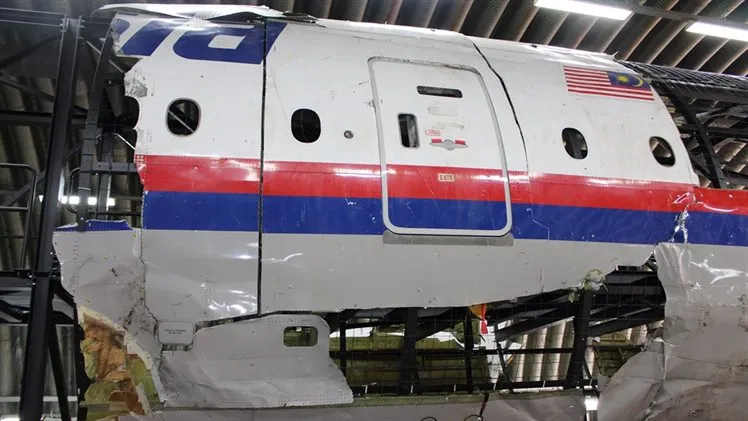
MH17 anniversary: EU says Russia must accept responsibility
Jul 17, 2019

On the anniversary of the MH17 tragedy, the European Union reiterated its demand for Russia to accept responsibility for the downing of the Malaysia Airlines flight in 2014. The incident, which resulted in the loss of 298 lives, has been a focal point of international tension, with investigations linking the missile that brought down the plane to Russian military support for separatists in Eastern Ukraine. The EU emphasized the need for accountability and justice for the victims' families, urging continued international pressure on Russia to acknowledge its role in the tragedy and to cooperate fully with ongoing investigations.
The anniversary of the tragic MH17 disaster serves as a poignant reminder of the ongoing geopolitical tensions and the need for accountability in international affairs. Each year, the European Union (EU) emphasizes the necessity for Russia to accept responsibility for its involvement in the incident, which resulted in the loss of 298 lives on July 17, 2014. This year, as we mark another somber anniversary, the EU's message remains clear: accountability is paramount.
Understanding the MH17 Incident
MH17 was a passenger flight operated by Malaysia Airlines that was shot down over eastern Ukraine during a period of intense conflict. Investigations have revealed that the plane was struck by a surface-to-air missile that originated from territory controlled by pro-Russian separatists. The incident has been a focal point in discussions surrounding the conflict in Ukraine and Russia's role in it.
The EU's Stance on Accountability
The European Union has consistently called for justice in the wake of the MH17 tragedy. Following extensive investigations, the Joint Investigation Team (JIT), which includes officials from the Netherlands, Australia, Belgium, Malaysia, and Ukraine, concluded that the missile that downed MH17 was transported from Russia. The EU has urged Russia to cooperate with these investigations and accept its role in the conflict.
Chart: Key Findings from the MH17 Investigations
| Findings | Description |
|---|---|
| Missile Origin | Investigators determined that the missile used to shoot down MH17 was fired from a Buk missile system that had been brought from Russia. |
| Military Involvement | Evidence indicates that Russian military personnel were involved in the operation of the missile system at the time of the attack. |
| Victim Identification | All 298 victims have been identified, with international cooperation playing a key role in the process. |
| Legal Proceedings | Trials are ongoing for suspects linked to the incident, highlighting the EU's commitment to ensuring justice. |
Russia's Response and Denials
Despite the overwhelming evidence presented by international investigators, Russia has repeatedly denied any involvement in the downing of MH17. The Kremlin has offered various counter-narratives, claiming that the missile could have originated from Ukrainian forces. However, these claims have been widely discredited by experts and independent investigators.
The Importance of International Accountability
The EU's insistence on accountability is not just about seeking justice for the victims of MH17. It is part of a broader commitment to uphold international law and the principles of sovereignty and territorial integrity. By holding Russia accountable, the EU aims to deter future aggression and promote peace in the region.
Implications for EU-Russia Relations
The MH17 incident has significantly strained relations between the EU and Russia. In response to the findings of the JIT, the EU has imposed sanctions on individuals and entities linked to the incident. These sanctions remain a contentious point in diplomatic relations and reflect the EU's resolve to stand firm against actions that undermine international stability.
Continuing the Fight for Justice
As we commemorate the MH17 anniversary, it is essential to remember the lives lost and the families affected by this tragedy. The call for justice is not just a political statement; it is a moral obligation. The EU's commitment to holding Russia accountable serves as a reminder of the importance of transparency and integrity in international relations.
Conclusion
The anniversary of MH17 is a solemn occasion that prompts reflection on the complexities of international conflict and the necessity for accountability. As the EU continues to advocate for justice, it remains vital for the international community to support these efforts. Only through acknowledgment of responsibility can we hope to pave the way for meaningful dialogue and reconciliation in the future.
Related Articles

Explore Thailand: The Best Islands to Visit for Paradise, Adventure, and Relaxation

The Ultimate Guide to the Best Islands in Thailand for Your Next Getaway

Do babies need passports? How to get a passport for a newborn

How to get a U.S. passport fast: here’s how to expedite the process

What is Mobile Passport Control: 5 reasons why you should use it

SENTRI vs. Global Entry: A detailed guide

Do you need a passport to go to the Bahamas? Let’s find out

Do you need a passport to go to Mexico? A detailed guide

Do you need a passport to go to Canada? We got the answer

Do You Need a Passport for a Cruise: An Essential Travel Guide

Booster Seat Requirements: All the Rules to Follow in Your Rental Car

What Are the World’s Most Powerful Passports, and How Does Yours Rank?

How to Take a Passport Photo at Home: A Helpful Guide

You've got to have heart! Southwest's new livery

Your opinion: Should water be free on low cost carriers?

Young women bolder than guys as solo travellers
